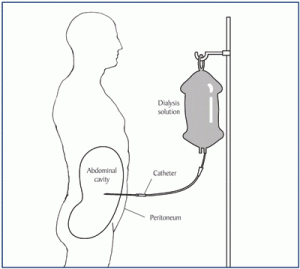 HbA1C Results Prove Inaccurate For Dialysis Patients: According to a new study at Wake Forest Baptist Medical Center, a test known as the golden standard long-term glucose monitoring test proved to be less valuable in patients who are on dialysis.
HbA1C Results Prove Inaccurate For Dialysis Patients: According to a new study at Wake Forest Baptist Medical Center, a test known as the golden standard long-term glucose monitoring test proved to be less valuable in patients who are on dialysis.
The hemoglobin A1C (HbA1c) is administrated to patients over a 3-month period to check blood sugar levels and has become a trusted test in terms of the medical field. It had even been identified as an applicable tool in diagnosing diabetes, according to the American Diabetes Association. However, recently professionals have found that the HbA1c test is not helpful for patients who have been diagnosed with diabetes and are in the advanced stages of kidney failure. Alternatively, the GA assay, aka glycated albumin does appear to be more helpful in that area.
Diabetes is the most common cause of kidney failure worldwide and is associated with high mortality rates — more than 20 percent of dialysis patients die each year. As such, there is an urgent need for accurate blood sugar testing in diabetic dialysis patients.
Barry I. Freedman, M.D., lead investigator of the study and Professor at John H. Felts III said, “Many organs don’t function properly in severe kidney failure. For example, most dialysis patients have anemia with fewer red blood cells than they should, which has a dramatic impact on the accuracy of the HbA1c reading.”
Freedman goes on to say, “Doctors long thought the HbA1c predicted outcomes in diabetes. This test is not predictive of outcomes in diabetes patients with kidney disease on dialysis. Dialysis patients and physicians get a false sense of security because their lower HbA1c actually relates to shorter red cell survival, yet suggests diabetes control is better than it really is.”
This is the way it works. Hemoglobin takes red blood cells through the body, carrying oxygen. Blood sugar will interact with the hemoglobin and come up with HbA1c, which are only accurate when red cells have a regular lifespan. However, dialysis patients have a shorter red cell lifespan, which means the time that sugar is in the blood stream to interact with hemoglobin is reduced and cause less HbA1c values.
During this study, 444 patients suffering from diabetes who also have to undergo dialysis were tested on. While patients continued their normal treatments and were monitored in the amount of HbA1c they also agreed to the GA test every three months for 2.3 years.
Freedman responds the results of the test. “This is the first study showing that a blood sugar test predicts risk of death in diabetic dialysis patients, as well as risk of hospitalization. This test provides the missing link that will allow dialysis patients and physicians to accurately gauge risk. The association is clear: high GA readings predict higher risk.”
More than 24 million Americans suffer from diabetes and being able to monitor blood sugar is one way to manage diabetes. More than 500,000 people are on dialysis in United States alone and diabetes is the cause of almost 50 percent of those with kidney failure. More than 20 percent of patients who suffer from kidney failure die each year.